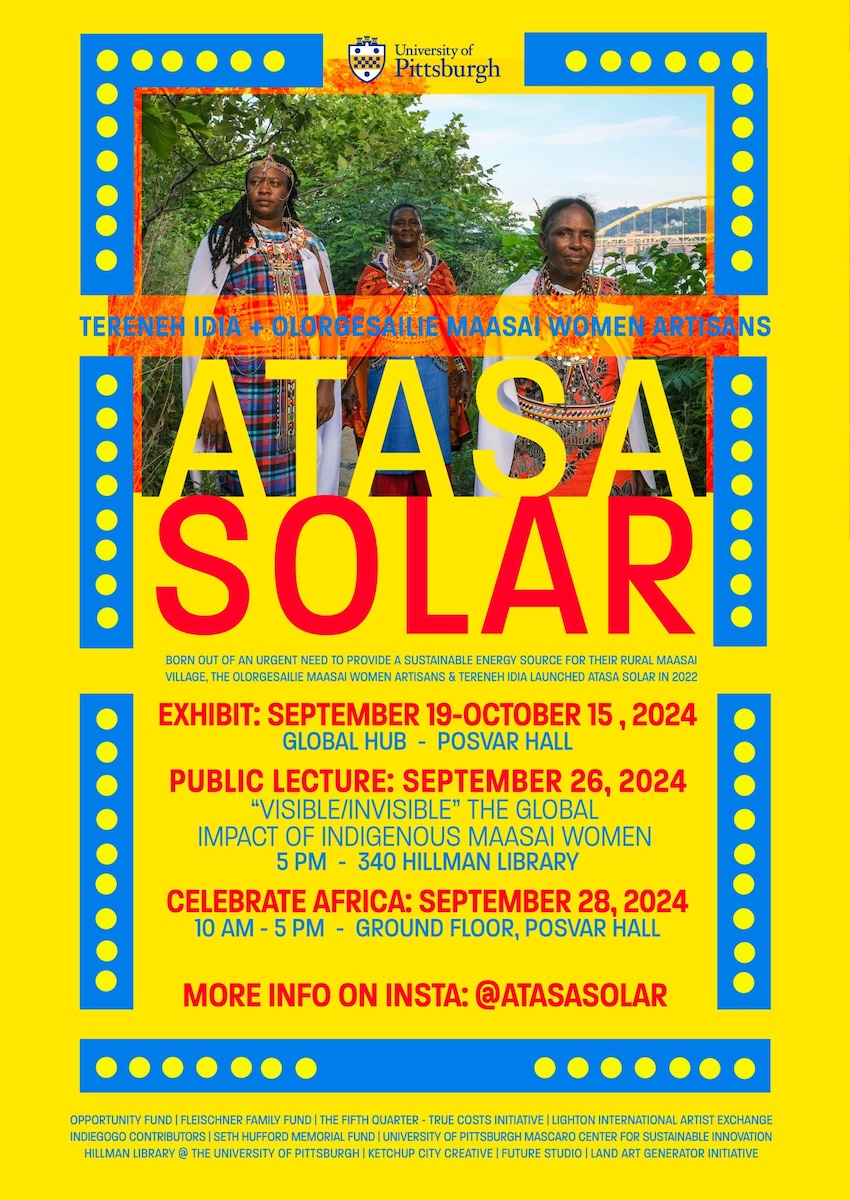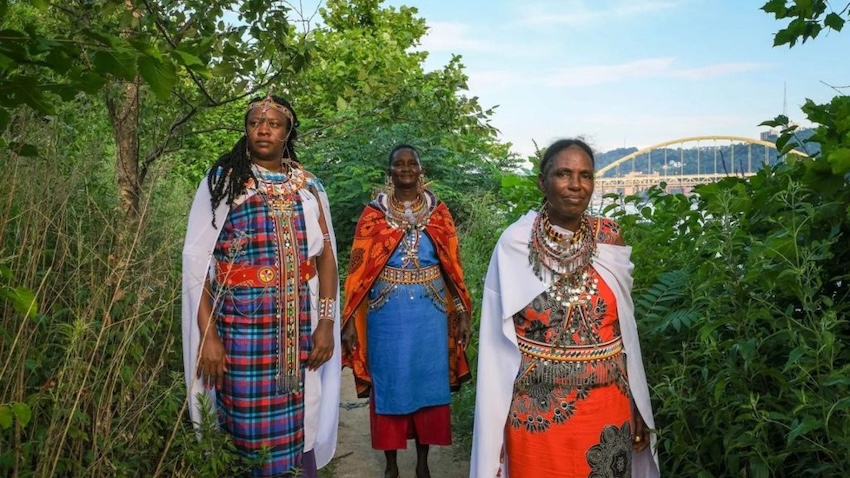
“We Make It“
Atasa Solar is a unique renewable energy initiative that merges solar technology with the creativity and ingenuity of Maasai women in Kenya. Founded by Pittsburgh fashion designer Tereneh Idia, the project is built on the principle of Atasa, meaning “we make it.”
With a background in marketing, Tereneh pursued a master’s degree in Kenya, studying Indigenous design after realizing her true passion was in creativity and artistry. Her time in Kenya connected her to a group of Maasai women who inspired the concept for Atasa Solar with their everyday challenges. Living in the rural Maasai village of Olorgesailie without access to electricity, the women faced energy scarcity and threats to their livestock from wildlife. One day, the Maasai women told Tereneh they had been late to a meeting because hyenas had eaten their goats the night before. This event began a conversation about the need for a sustainable energy solution in the village.
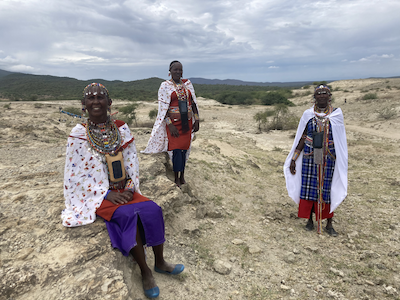
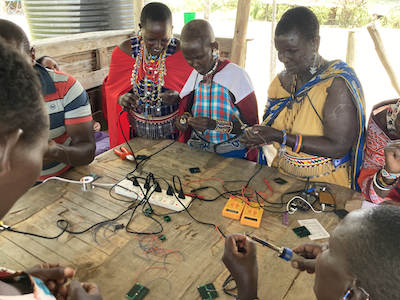
Merging Traditions and Technology
From this need, Atasa Solar developed into a project that not only provides solar energy but also integrates the creativity and cultural traditions of the Maasai women. Their expertise in beadwork and indigenous design became vital in creating solar-powered wearables like tote bag/backpack, phone holder, utility bag and belt, along with beaded bracelet flashlights and headlamps. By combining traditional craftsmanship with modern solar technology, these functional designs allow the Maasai community to continue their semi-pastoral lifestyle while benefiting from solar energy.
Kenya to Pittsburgh
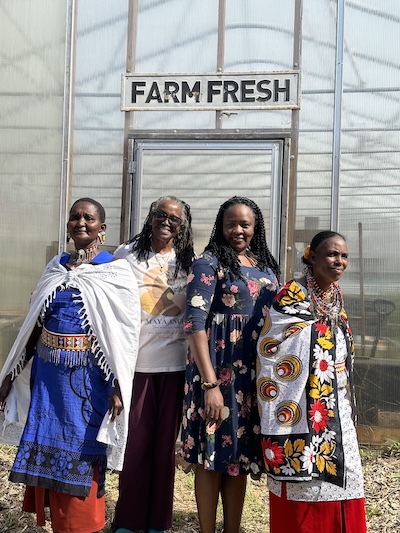
The Atasa Solar project, funded in part by the Mascaro Center for Sustainable Innovation (MCSI), has extended beyond Kenya and into Pittsburgh. Aaron Henderson, a Studio Arts faculty member with MCSI, played a key role in connecting Atasa Solar to the University of Pittsburgh. After Tereneh encouraged Aaron to visit the Maasai village in Kenya and see the impact of Atasa Solar firsthand, Aaron assisted with the installation of solar charging stations at Pittsburgh’s Freeman Family Farm. These stations support charging for small electronics, electric bikes, and wheelchairs, with additional stations and wearable solar projects in development.
In addition to its solar initiatives, Atasa Solar recently visited Tony Kerzmann’s ENGR 1905 class, Current Issues in Sustainability, where the Maasai women shared their journey and work with students. The women, many of whom have never received formal education, spoke about their experiences in bringing renewable energy to their communities, highlighting the tangible impact of sustainable design and community-led innovation.
See Atasa Solar’s Work in Pittsburgh
You can see Atasa Solar’s work across Pittsburgh through October:
- Atasa Solar Exhibit
- September 19-October 15, 2024
- Global Hub, Posvar Hall
- Residence at Children’s Museum Lab
- October 2024
- Drop-in workshops on Saturdays
- Fashion show of sustainable designs on October 27
- Lecture: “Visible/Invisible: The Global Impact of Indigenous Maasai Women”
- September 26 @ 5pm
- 340 Hillman Library
- Celebrate Africa Festival
- September 28 @ 10am-5pm
- Ground Floor, Posvar Hall
Learn more about Atasa Solar here.
